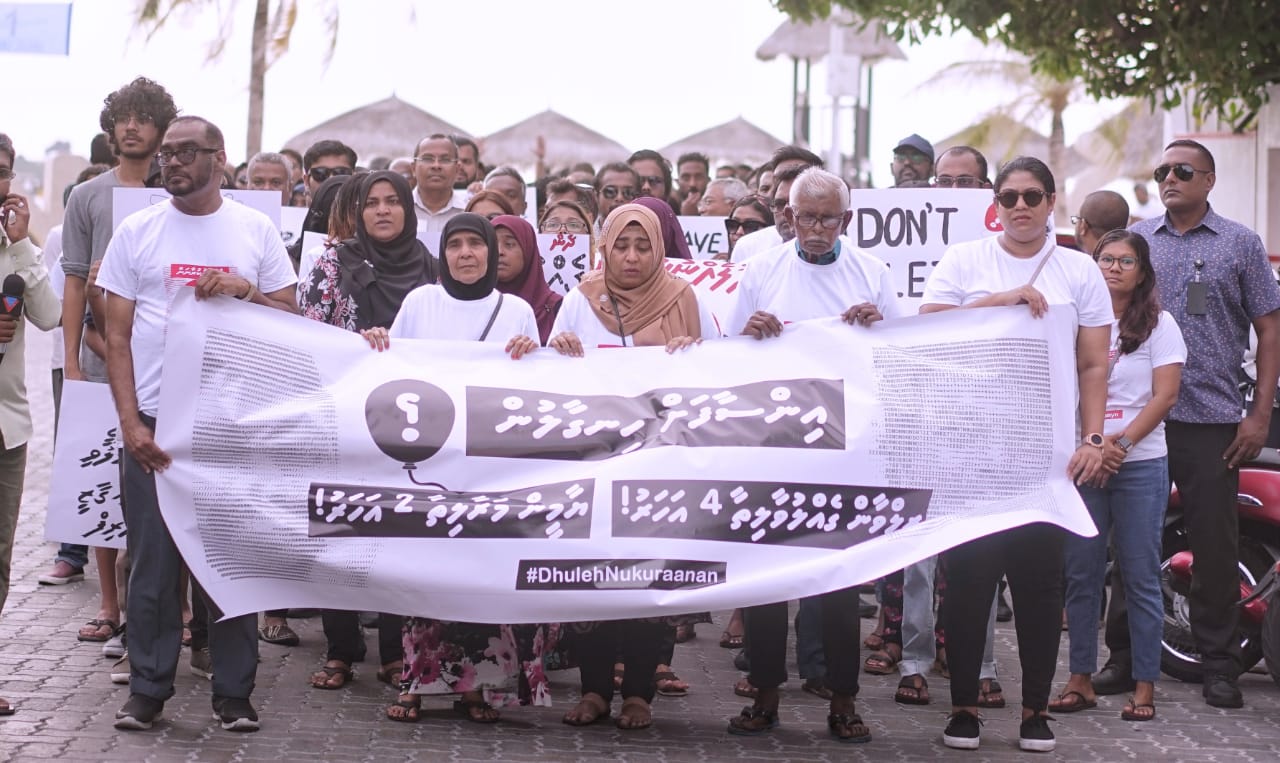‘Terrorist group’ behind Rilwan’s abduction
Rilwan’s family said the state was failing to deliver justice.

08 Aug 2019, 09:00
A “terrorist group” behind the abduction of Ahmed Rilwan in August 2014 has been identified with sufficient evidence to prosecute, according to the presidential commission on deaths and disappearances.
The commission shared its latest findings with Rilwan’s family two weeks ago, chair Husnu Suood tweeted on Thursday, the fifth anniversary of the Maldives Independent journalist’s disappearance.
Suood said the commission was considering revealing the details of the group before the end of August. Suood previously said the attempted murder of blogger Ismail Khilath Rasheed in June 2012, the assassination of lawmaker Dr Afrasheem Ali in October 2012, Rilwan’s abduction in August 2014, and the murder of blogger Yameen Rasheed in April 2017 were all connected and carried out by an extremist group.
“What happened to Rilwan after the abduction, is a subject still under investigation by [the commission], and it is trying to verify and corroborate the information that it has received,” he added.
Become a member
Get full access to our archive and personalise your experience.
Already a member?
Discussion
No comments yet. Be the first to share your thoughts!
No comments yet. Be the first to join the conversation!
Join the Conversation
Sign in to share your thoughts under an alias and take part in the discussion. Independent journalism thrives on open, respectful debate — your voice matters.




